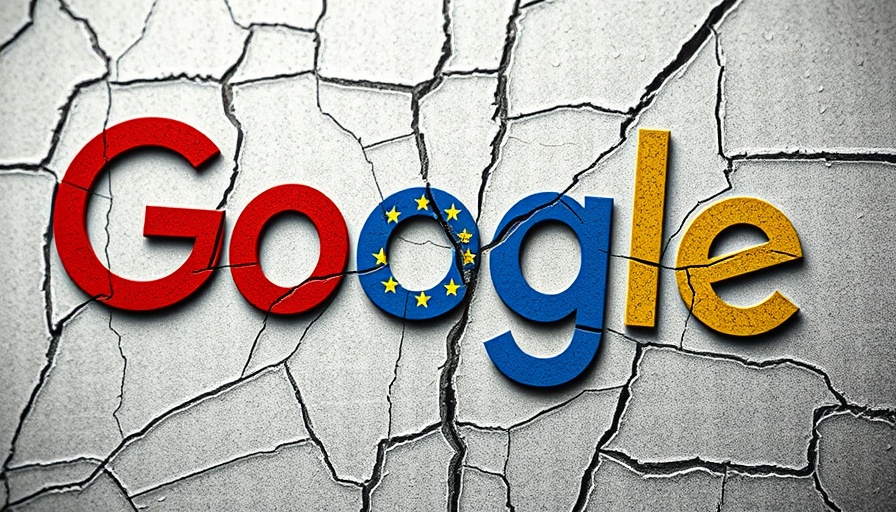
Google's New Search Variations: A Game Changer?
In a notable shift, Google is currently testing alternative phrases to its long-standing "People also search for" feature, altering the way users engage with search results. New phrases like "Related to your search," "Search for next," and "Also search for" are surfacing in search results, prompting both curiosity and concern among marketers and small business owners. These variations are designed to enhance user experience by providing more contextual suggestions, but they also signal a change in how search engine optimization (SEO) strategies may need to adapt.
Why Change Matters: The User Experience Factor
The testing of alternative phrases could be indicative of Google's ongoing commitment to improving the user experience. While the traditional "People also search for" has been relatively effective, Google's forays into other phrasing may reflect a deeper understanding of user intent. Marketers need to recognize this shift, as the way users engage with search results directly impacts how businesses should strategize their keywords and optimize content. With the introduction of these new phrases, small business owners must stay agile and ready to pivot their digital marketing efforts.
SEO Strategies: Adapt or Fall Behind
For marketers and agencies, adapting to Google's evolving language is crucial. This shift emphasizes not just the need for keyword optimization, but also a broader understanding of user intent and behavior. Businesses should focus on creating rich, contextually relevant content that aligns with these emerging search terms. This could involve re-evaluating existing SEO practices to ensure they resonate with the latest user behaviors and preferences. Simply relying on traditional strategies may no longer suffice in a landscape where user expectations are continually changing.
The Economic Impact of Google's Changes on Small Businesses
The repercussions of this testing initiative could be significant for small businesses that depend on search visibility. If new search recommendations lead to shifts in user engagement, there’s potential for fluctuations in traffic and conversions. Marketers must be proactive in searching for patterns in these changes. Small businesses should also harness insights gleaned from analytics to tweak their online strategies accordingly, ensuring they not only maintain visibility but also improve their connection with target audiences.
Future Predictions: Where SEO is Heading
Looking ahead, the future of SEO appears to be firmly rooted in AI and machine learning technologies. As Google enhances its algorithms to prioritize user experience, it becomes imperative for businesses to embrace these innovations. The next-generation optimization strategies may center around predictive analytics—anticipating user needs rather than merely reacting to them. Integrating AI-driven tools into marketing frameworks can streamline efforts and enhance effectiveness.
Unlocking the Value of AI in Marketing
The real question for small business owners and marketers is: How can they leverage AI to navigate this evolving landscape? Utilizing AI tools can provide valuable insights into consumer behavior, allowing businesses to stay ahead of trends. By analyzing data patterns, organizations can tailor their content and marketing strategies to align with user expectations that may arise from Google's testing of phrases.
In conclusion, the alterations in Google's search results reminder us that flexibility and innovation are vital in the marketing domain. Small business owners and marketers must remain vigilant, adapting their strategies as Google continues to experiment with search terminologies. As businesses navigate this new frontier, integrating AI tools and insights is critical for maintaining relevance and fostering growth in a digital economy.
Call to Action: Stay updated on the latest SEO trends and explore how you can utilize AI to refine your marketing strategies. Join our community to receive insights, tips, and strategies designed to empower your small business success.
 Add Row
Add Row  Add
Add 




Write A Comment